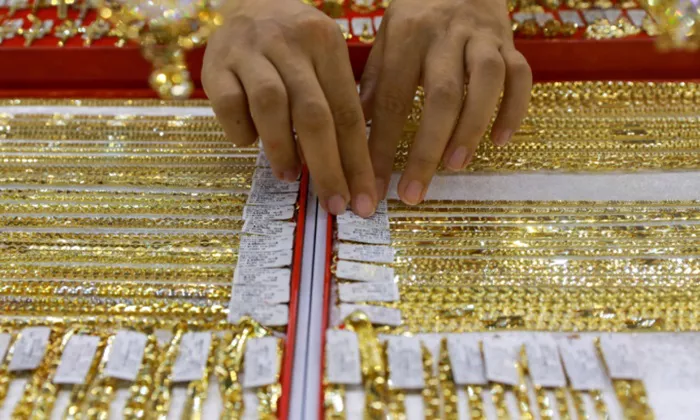A significant archaeological discovery was made in the autumn of 2023 near Bunnik, a town in the province of Utrecht, Netherlands, when two metal detectorists, Gert-Jan Messelaar and Reinier Koelink, uncovered a hoard of 404 gold and silver coins. The discovery, which remained confidential until January 2024, was officially revealed by the Cultural Heritage Agency of the Netherlands. What sets this hoard apart is its unique composition: a mix of Roman and British coins, a combination never before found in mainland Europe.
The hoard includes 42 British “stater” coins, dating from 5 B.C. to 43 A.D., and 362 Roman coins minted between 200 B.C. and 47 A.D. The British coins feature the inscription of Cunobeline, a British king who reigned from 9 to 43 A.D., offering a rare glimpse into early British history during Roman expansion. The origin of these coins raises intriguing questions—did the owner acquire them through trade, or were they spoils of war from defeated British tribes?
Among the Roman coins, 72 are gold aurei, dating from 19 B.C. to 47 A.D. Notably, two of the aurei show no signs of wear, suggesting they were freshly minted when obtained. The coins’ broad range of dates implies that the hoard accumulated over time rather than being collected at once, with the most recent Roman coins dating to the reign of Emperor Claudius (41-54 A.D.).
The hoard’s location is also significant. Found in the northern border region of the Roman Empire, known as the Lower Germanic Limes, it sits along the boundary between the Roman provinces of Germania Inferior and Germania Magna. This area played a key role in the Roman conquest of Britannia, and the discovery lends credence to the theory that the hoard may have belonged to Roman soldiers returning from campaigns in Britain. The Roman coins likely represented their pay, while the British coins may have been acquired as war booty.
This discovery is not only the largest of its kind in Utrecht but also the only known combined Roman-British coin hoard in mainland Europe. While similar hoards have been found in the UK, this find stands as a singular archaeological treasure on the continent. The presence of both Roman and British coins together provides unique insight into the interactions between the Roman Empire and the British Isles during a time of intense conflict and cultural exchange.
The hoard’s preservation and study will likely offer further revelations about the historical context in which it was buried, as well as the complex relationship between the Roman Empire and Britannia. As research continues, scholars will examine the individual coins to uncover more details about their acquisition and the person who may have collected them, shedding light on a pivotal period in European history.
Related topics:
- India Surpasses China in Gold Purchases, Buying 51% More in Three Months
- Gold Rates Skyrocket in Chennai on Diwali, 24K Gold Exceeds Rs. 81,000 Per 10 Grams
- Gold and Silver Prices Rise Across India on January 13, 2025


